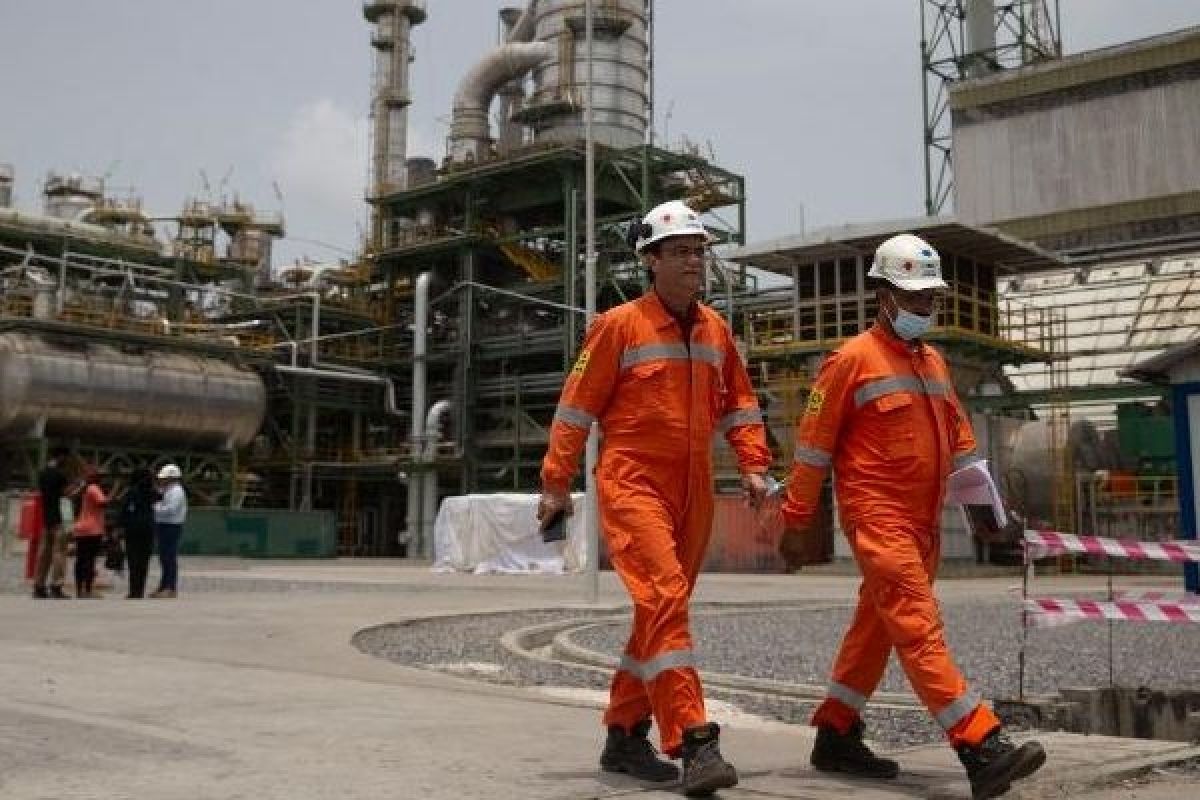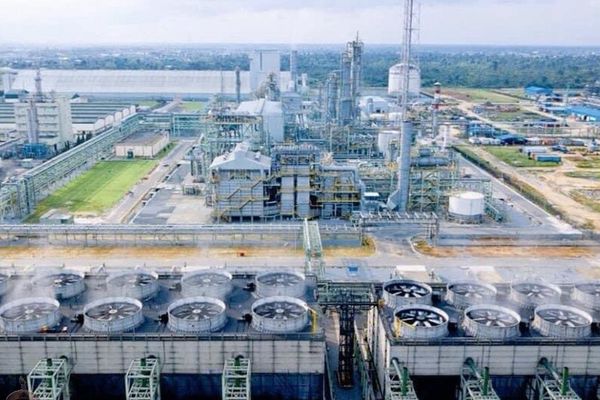
While Europe struggles with potash supplies thanks to the war in Ukraine, Nigeria is set to become self-sufficient in fertiliser, says Martins Azuwike in Lagos.
Nigerian farmers were given a boost in March, with the completion of a new state-of-the-art urea plant in Lagos.
Capable of producing three million tonnes of fertiliser a year, the $2.5 billion Dangote Fertiliser Urea Plant is the largest of its type in Africa – and the second largest in the world.
The project is the brainchild of Africa’s richest man, Aliko Dangote, who hopes to almost double Nigeria’s existing 3.1m tonne output in urea and ammonia with his new 500-hectare (1,200 acre) plant in Lagos’s Lekki Free Trade Zone.
Dangote also said that the plant could earn Nigeria $5 billion in export revenue a year down the tracks.
Nigeria’s President Muhammadu Buhari officially inaugurated the plant at a ceremony attended by 18 governors, as well as several ministers and captains of industry, signifying its importance to the country.
He said the project would revolutionise Nigeria’s agricultural sector.
‘Many Nigerians who hitherto practised subsistence farming because of non-availability of necessary inputs, can now take up agriculture as a business,’ said President Buhari. ‘We expect a rise of a new breed of agro-preneurs who will add value to farming and make the nation self-sufficient in food production.’
Analysts project that Nigeria could end fertiliser importation by 2023, as the new plant widens the operational scope and scale of the country’s 48 existing fertiliser blending plants.
It is hoped the increase in fertiliser application will also help Nigeria achieve food security.
Nigerian farmers currently use about 20 kilograms of fertiliser per hectare of agricultural land, according to World Bank data.
This is around 80kg short of the recommended 100kg per hectare needed to achieve optimal yields.
In addition to the new plant, Dangote is working with local nitrogen, phosphorus and potassium (NPK) blenders, farming associations, NGOs, and national and local governments across Africa on sustainable ways to improve soil and increase farm yields.
The company said its focus is to make fertiliser affordable for farmers, eradicate the influence of middlemen, and improve product efficiency through research, innovation and the latest technology.
It said it wants to be the preferred manufacturer and supplier of fertilisers and other ammonia products in Africa, produce fertiliser and chemical products in a safe and healthy environment for the benefit of all stakeholders, and be a leading manufacturer of quality and affordable fertiliser products all over the world.

The Dangote Group is the largest employer in Nigeria after the federal government.
In a statement about the new urea works, the company said: 'In the course of its construction, the complex provided about 5,000 direct and indirect jobs in all categories; an additional 5,000 jobs within the community and also created 500 permanent jobs.’
It added: ‘As Dangote Fertiliser Company rolls out its products, this process will change the lives of Nigerians and others forever.’
Nigeria’s agriculture sector was worth 24 per cent of GDP in 2020; 70 per cent of its population is engaged in agricultural production at a subsistence level.
Its low yields and high population mean Nigeria has to spend $5 billion on food imports a year.
As well as reducing food imports, the company claims its new plant will help boost fertiliser exports, allowing Nigeria to retain $125 million in import substitution while also providing $625 million in export revenue.
The company already exports fertiliser to various countries, including the United States, Mexico, India and Brazil.
Speaking at the inauguration, the governor of the Central Bank of Nigeria (CBN), Godwin Emefiele, said that the urea plant would help mitigate the effects of rising global food prices, resolve the perennial petrochemical products imports problem, and take advantage of the emerging huge market opportunities presented by recent global developments, such as the war in Ukraine.
Russia and Belarus – who have been slapped with Western sanctions – are the world’s second and third largest producers of potash, a potassium-rich salt used as fertiliser in much of the world.
Addressing the president, the CBN governor described the completion of the plant as ‘a stellar example’ of the realisation of the president’s vision for a ‘self-reliant’ Nigeria.
‘It is only fitting, therefore, that this plant is being commissioned by Mr President himself, the original owner and protector of this vision.'
‘There is no doubt that improving access to fertiliser will contribute to significant improvements in the productivity of our local farmers. But probably more importantly, it will enhance our nation’s drive to improve food security and ensure we consume what we produce in Nigeria, thereby fulfilling another key promise and vision of this administration.’



